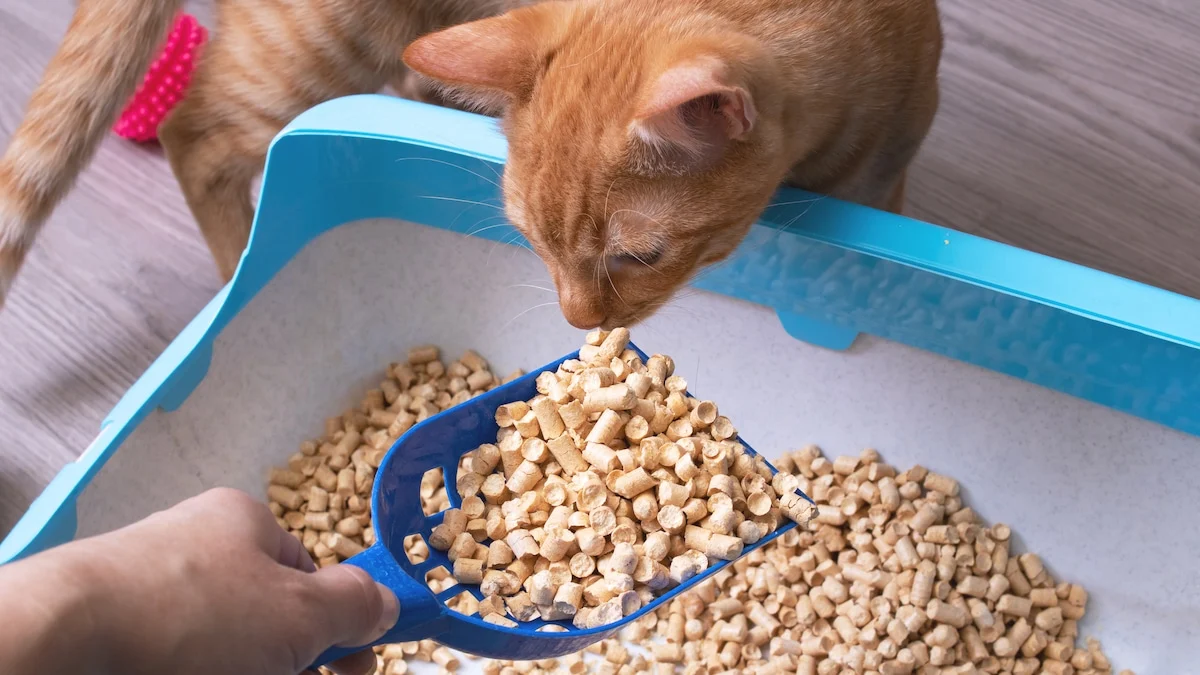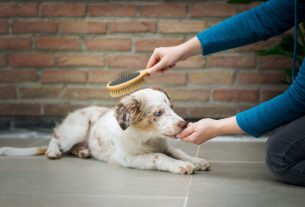For cat owners, providing a comfortable and clean environment for their feline friends is of utmost importance. One crucial aspect of maintaining a happy and healthy living space for your cat is choosing the right cat litter. In recent years, there has been a growing trend towards using natural cat litter options, driven by concerns about the environment, cat health, and personal preferences. In this article, we will delve into the world of natural cat litter, exploring its benefits, different types, and how to choose the best option for your furry companion.
The Rise of Natural Cat Litter: Why It Matters
Traditional cat litters are often made from clay, a non-renewable resource that requires extensive mining and processing. Additionally, some clay litters contain chemicals and fragrances that might not be the best choice for your cat’s respiratory health. Natural cat litters, on the other hand, are made from renewable and biodegradable materials, offering a more environmentally friendly alternative. These litters are often free from artificial fragrances, dyes, and harmful chemicals, making them safer for both cats and their human companions.
Types of Natural Cat Litter
Wood-Based Litter:
This type of litter is made from recycled wood, such as sawdust or wood shavings. It’s highly absorbent and effective at controlling odors. Some wood-based litters are processed to remove dust, making them a good option for cats with respiratory sensitivities. Examples include pine, cedar, and aspen litters.
Paper-Based Litter:
Paper litter is typically made from recycled newspaper or other paper products. It’s biodegradable and often softer on your cat’s paws compared to traditional clay litters. While it’s usually dust-free, it might need to be changed more frequently due to its lower odor control capabilities.
Corn-Based Litter:
Litters made from corn are renewable and usually clump well for easy scooping. They are also flushable in small quantities, which can be convenient. However, some cats might be sensitive to the scent of corn litters, and they might not control odors as effectively as other types.
Wheat-Based Litter:
Wheat litter forms clumps and is relatively low in dust. It’s often flushable and made from a renewable resource. However, some cats might be tempted to eat wheat litter, so it’s important to monitor their behavior if you choose this option.
Coconut-Based Litter:
This newer option is made from the husks of coconuts. It has good clumping properties and is usually free from additives. Coconut-based litter is known for its natural odor-absorbing qualities and minimal dust.
Grass-Based Litter:
Litter made from grass, such as barley or rye, is another eco-friendly option. It’s biodegradable and typically free from chemicals. It might not clump as well as other options, so be prepared for more frequent changing.
Choosing the Best Natural Cat Litter
Selecting the best natural cat litter depends on several factors, including your cat’s preferences, your lifestyle, and any specific sensitivities your cat might have. Here’s how to make an informed decision:
Odor Control: If odor control is a top priority, consider litters that are known for their natural odor-absorbing properties. Coconut-based and wood-based litters are often praised for their effectiveness in this area.
Clumping Ability:
Clumping litters make scooping waste easier and help keep the litter box cleaner. Look for litters that form solid clumps that can be easily removed without breaking apart.
Dust Level:
Dust can be a concern for both cats and their owners, especially if anyone in the household has respiratory sensitivities. Choose litters that are labeled as low dust or dust-free.
Cat Preferences:
Some cats are more particular about the texture of the litter they use. For instance, if your cat has sensitive paws, opt for a softer litter like paper-based or coconut-based.
Environmental Impact:
If you’re environmentally conscious, prioritize litters made from renewable materials and those that are biodegradable. These options have a lower impact on the planet compared to non-renewable clay litters.
Tracking and Mess:
Consider how much tracking or mess a particular litter might create. Some litters are lightweight and can be easily tracked around the house, while others are heavier and stay in the litter box better.
Health Considerations:
If your cat has allergies or respiratory issues, choose a litter that is free from artificial fragrances and chemicals. Natural litters are often a safer option in this regard.
Cost and Availability:
Different natural litters come at varying price points, so consider your budget. Additionally, check the availability of the chosen litter in your area to ensure a consistent supply.
Transitioning to Natural Cat Litter
Switching to a natural cat litter requires a gradual transition to ensure your cat’s comfort. Cats can be sensitive to changes, so follow these steps:
Mixing:
Begin by mixing a small amount of the new natural litter with your cat’s current litter. Gradually increase the ratio of the new litter over several days.
Observation:
Watch your cat’s behavior closely during the transition. If your cat seems uncomfortable or avoids using the litter box, consider slowing down the transition process.
Patience:
Be patient. It might take some time for your cat to fully adjust to the new litter. Allow them the time they need to get used to it.
In Conclusion
Choosing the best natural cat litter is a decision that can have a significant impact on both your cat’s well-being and the environment. By considering factors such as odor control, clumping ability, dust level, and your cat’s preferences, you can make an informed choice that aligns with your values and your cat’s needs. Remember that each cat is unique, so be prepared to adjust your choice if your cat doesn’t take to the new litter immediately. With careful consideration and a gradual transition, you can provide your feline companion with a comfortable and environmentally friendly litter solution that contributes to their overall health and happiness.


